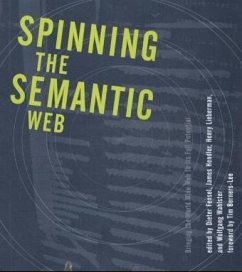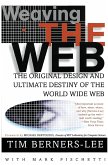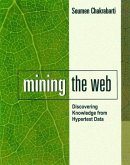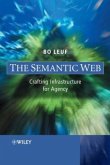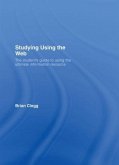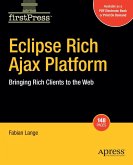A guide to the Semantic Web, which will transform the Web into a structured network of resources organized by meaning and relationships.
As the World Wide Web continues to expand, it becomes increasingly difficult for users to obtain information efficiently. Because most search engines read format languages such as HTML or SGML, search results reflect formatting tags more than actual page content, which is expressed in natural language. Spinning the Semantic Web describes an exciting new type of hierarchy and standardization that will replace the current 'web of links' with a 'web of meaning.' Using a flexible set of languages and tools, the Semantic Web will make all available information -- display elements, metadata, services, images, and especially content -- accessible. The result will be an immense repository of information accessible for a wide range of new applications.
This first handbook for the Semantic Web covers, among other topics, software agents that can negotiate and collect information, markup languages that can tag many more types of information in a document, and knowledge systems that enable machines to read Web pages and determine their reliability. The truly interdisciplinary Semantic Web combines aspects of artificial intelligence, markup languages, natural language processing, information retrieval, knowledge representation, intelligent agents, and databases.
Review text:
'If you're a technical communicator who works with the World Wide Web (WWW) and would like a glimpse into the Web's future, this collection of articles by Web gurus is for you.'
-- Colleen Jones, Technical Communication
As the World Wide Web continues to expand, it becomes increasingly difficult for users to obtain information efficiently. Because most search engines read format languages such as HTML or SGML, search results reflect formatting tags more than actual page content, which is expressed in natural language. Spinning the Semantic Web describes an exciting new type of hierarchy and standardization that will replace the current 'web of links' with a 'web of meaning.' Using a flexible set of languages and tools, the Semantic Web will make all available information -- display elements, metadata, services, images, and especially content -- accessible. The result will be an immense repository of information accessible for a wide range of new applications.
This first handbook for the Semantic Web covers, among other topics, software agents that can negotiate and collect information, markup languages that can tag many more types of information in a document, and knowledge systems that enable machines to read Web pages and determine their reliability. The truly interdisciplinary Semantic Web combines aspects of artificial intelligence, markup languages, natural language processing, information retrieval, knowledge representation, intelligent agents, and databases.
Review text:
'If you're a technical communicator who works with the World Wide Web (WWW) and would like a glimpse into the Web's future, this collection of articles by Web gurus is for you.'
-- Colleen Jones, Technical Communication

